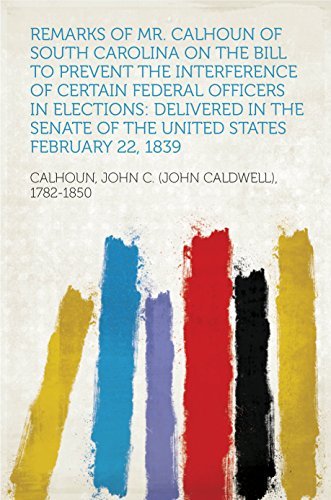What do you think?
Rate this book


10 pages, Kindle Edition
First published October 4, 2009
”Mr. President: At the last session of Congress, it was avowed on all sides that the public debt, as to all practical purposes, was in fact paid, the small surplus remaining being nearly covered by the money in the Treasury and the bonds for duties which had already accrued; but with the arrival of this event our last hope was doomed to be disappointed. . . .”
🔹The very point at issue between the two parties there is, whether nullification is a peaceful and an efficient remedy against an unconstitutional act of the general government, and may be asserted, as such, through the State tribunals.